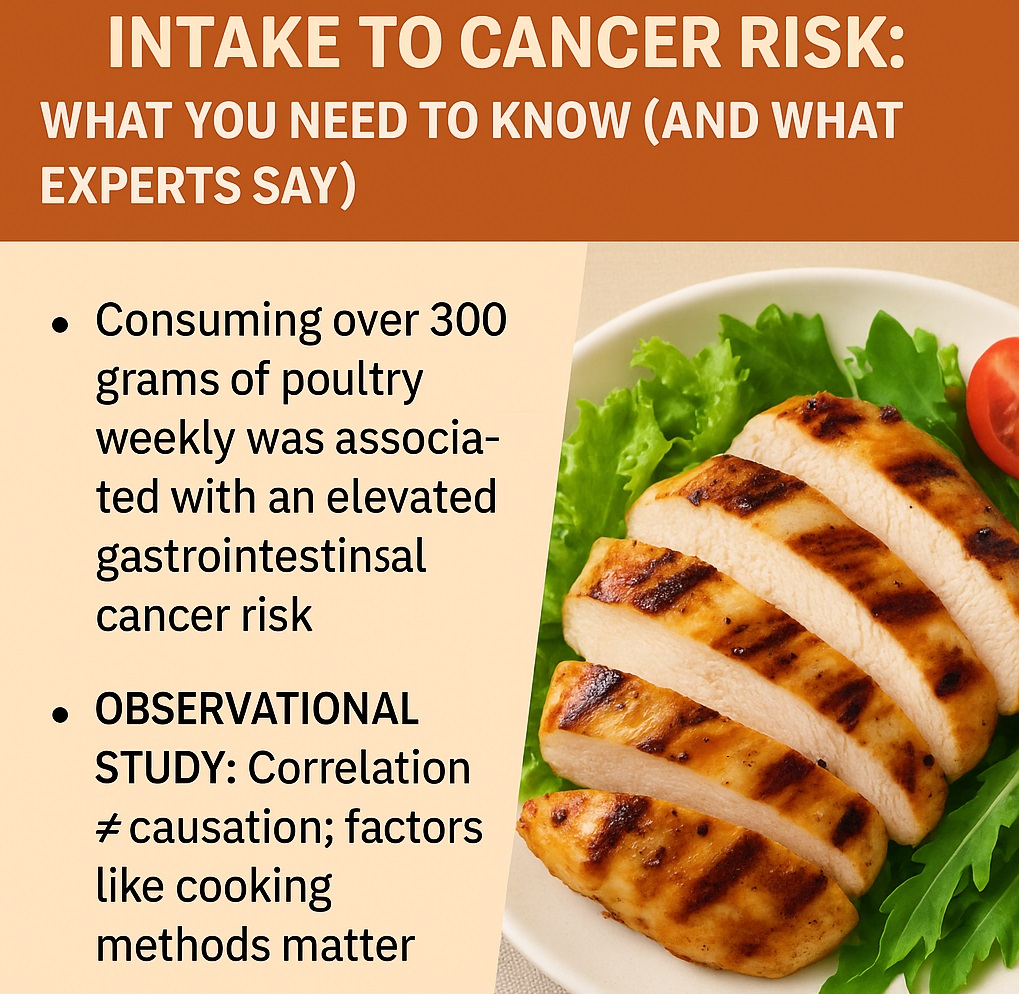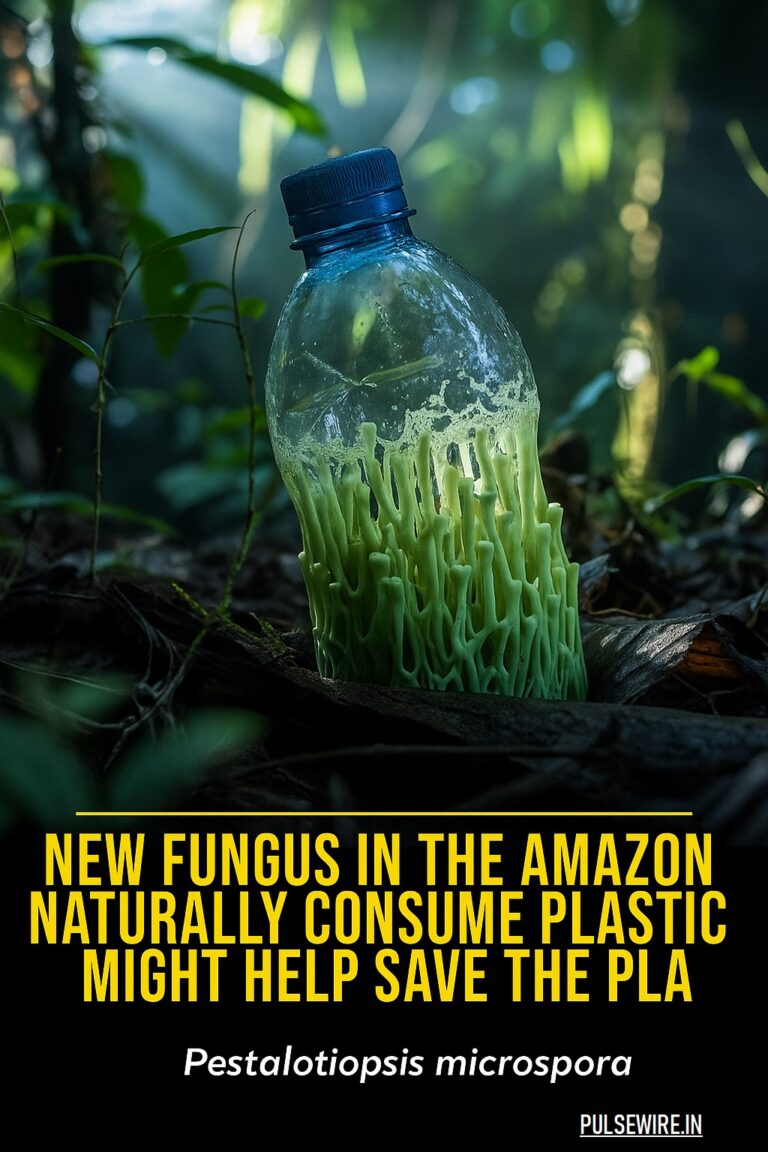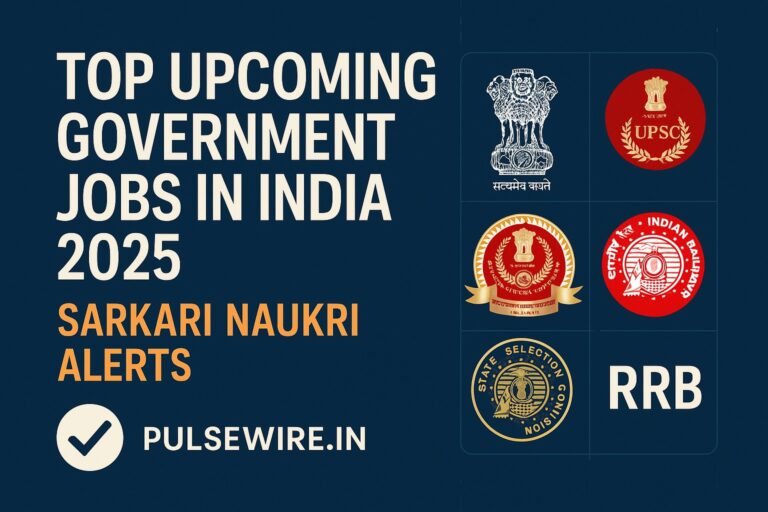
Introduction
Chicken: often touted as the “healthy” protein alternative. But what if a recent study suggested a surprising link between high poultry consumption and increased cancer risk?
While poultry is widely recommended as a leaner, safer choice compared to red and processed meat, scientific understanding of diet and disease is always evolving. A newly published study is now stirring debate in the health community.
This article breaks down the findings of the study, explores its limitations, compares it with existing research, and offers practical, science-backed dietary advice to help you make informed decisions about your plate.
1. The Recent Study: What Was Claimed?
Study Overview:
Published in Nutrients (April 2025), the Italian observational study tracked 4,869 adults from Southern Italy over ~19 years. Researchers analyzed dietary data and mortality rates to investigate links between poultry consumption and health outcomes.
Key Findings:
- Individuals consuming more than 300g of poultry weekly showed:
- A 27% higher risk of death from all causes
- A 2.27x higher risk of death from gastrointestinal cancers
- The elevated risk appeared more pronounced in men
While these numbers seem alarming, context is essential.
2. Crucial Caveats: Understanding the Study’s Limitations
Correlation is Not Causation:
The study is observational, meaning it identifies associations—not proof of cause. Many lifestyle factors (e.g., smoking, alcohol, physical activity, broader diet patterns) could contribute to the outcomes and may not be fully accounted for.
Poultry Preparation Details Missing:
The study didn’t differentiate between:
- Cooking methods: (fried, grilled, roasted, stewed)
- Types of poultry: (processed vs. unprocessed)
This matters because high-temperature cooking (grilling, frying) can produce carcinogenic compounds like HCAs and PAHs — known risk factors across all meat types.
Low Event Numbers:
The actual number of GI cancer deaths was statistically small, making it difficult to draw definitive conclusions.
Self-Reported Dietary Intake:
Reliance on food frequency questionnaires introduces recall bias and inaccuracies.
No Apparent Industry Funding Bias:
The study was funded by an Italian research foundation, with no reported commercial food industry conflicts.
3. The Broader Scientific Consensus: What We Know About Meat & Cancer
Red & Processed Meat Risks:
- Classified as carcinogenic or probably carcinogenic by the World Health Organization (WHO) and World Cancer Research Fund (WCRF)
- Linked to increased colorectal cancer risk, especially with processed meats
Poultry in Dietary Guidelines:
- Generally considered a lean, healthy protein
- Included in balanced diets such as the Mediterranean diet
- Most research shows no consistent link between poultry intake and cancer risk
- Some studies suggest poultry may even be protective against certain cancers
Whole Diet Matters More:
Experts stress that overall dietary patterns, not single foods, are key to long-term health.
4. What Does This Mean for Your Plate? Practical, Balanced Advice
Don’t Panic:
One study doesn’t warrant drastic changes. Avoid reactionary dietary shifts.
Focus on Balance:
- Emphasize whole foods: vegetables, fruits, legumes, grains, fish
- Include a variety of protein sources: poultry, fish, tofu, beans
- How to Clean Your Stomach Naturally at Home: 7 Proven Remedies
Prefer Lean, Unprocessed Poultry:
- Choose skinless breast, thighs, and unprocessed cuts
Healthier Cooking Matters:
- Use baking, broiling, stir-frying instead of grilling/frying
- Avoid charring or overcooking meats
Moderate Portions:
- Limit poultry to 2-3 servings per week
- Rotate proteins to maintain nutritional variety
Consult a Professional:
Talk to your doctor or dietitian before changing your diet, especially if you have health risks or pre-existing conditions.
5. Conclusion
A recent study has sparked discussion on whether poultry may be linked to cancer risk, but strong conclusions cannot be drawn yet.
The study has important limitations, and existing evidence from global health organizations continues to support poultry as a healthy protein when consumed in moderation and prepared safely.
The key takeaway? Don’t fear poultry — instead, aim for a diverse, balanced diet rich in plant-based foods and lean proteins, and rely on consistent, quality research when making dietary choices.
Call to Action:
Stay informed. Prioritize overall healthy eating habits. And always consult health professionals before making major diet changes.
Article Info
Author: The Pulsewire Team
Published: June 22, 2025
Sources:
- Original Study in Nutrients
- WHO – Cancer Overview
- WCRF – Diet, Activity & Cancer
- AICR – American Institute for Cancer Research

Sandeep Jadhav is a self-taught sustainability writer and the founder of Pulsewire.in. He shares insights on upcycled product manufacturing, green entrepreneurship, and eco-friendly business models. Though not formally certified, his work is backed by deep research and a strong passion for promoting climate-positive innovation.









